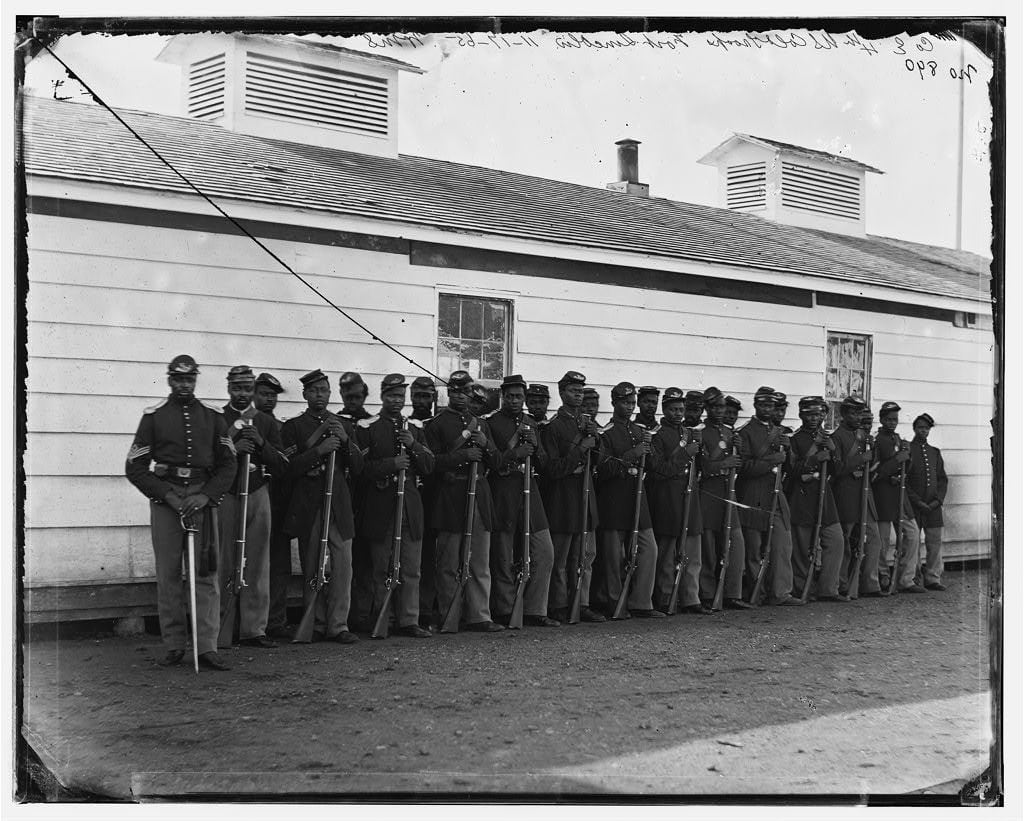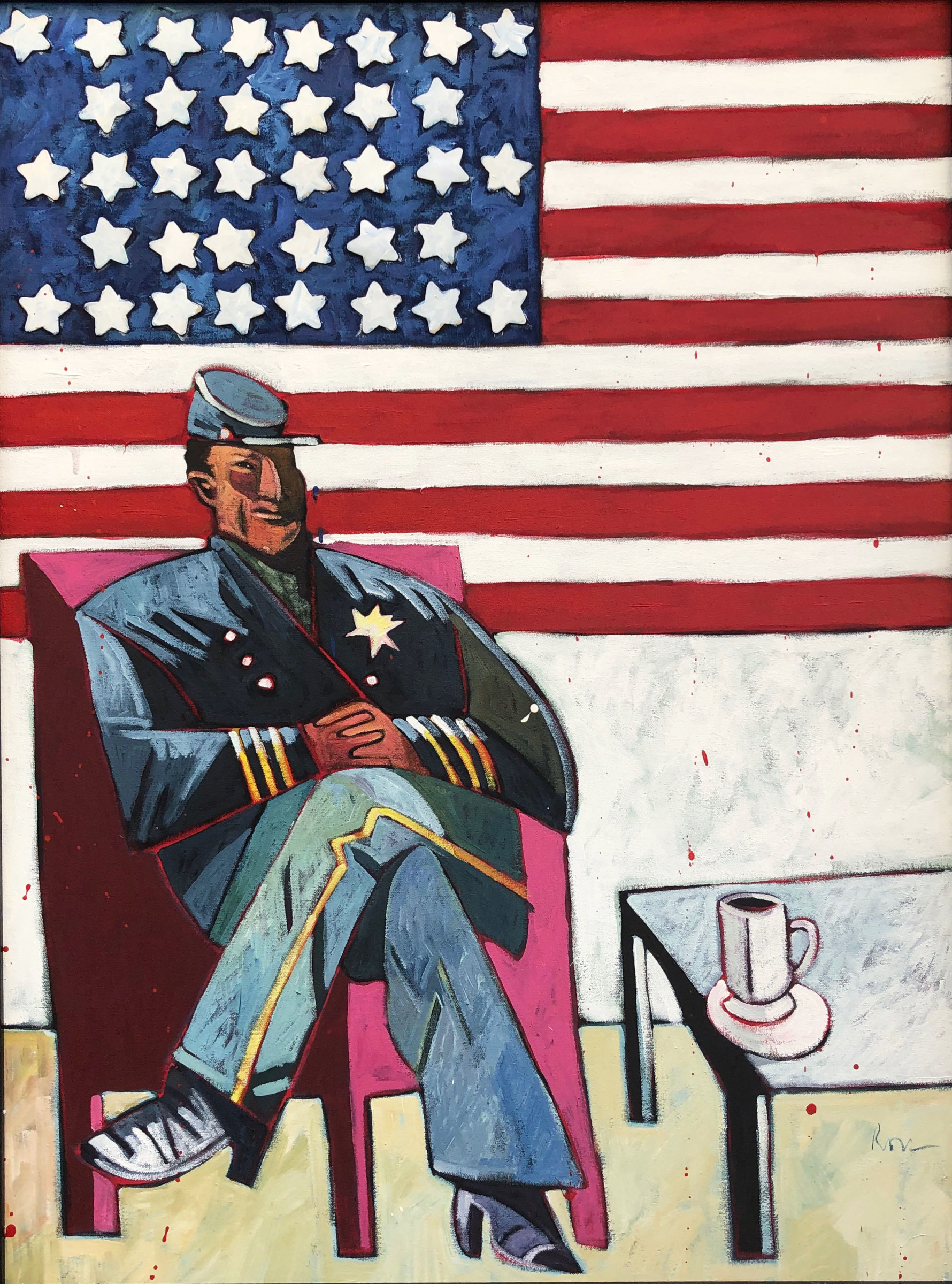William Carney Civil War - Sergeant William Harvey Carney, who received the Medal of Honor after the war. (James E. Reed, Moorland-Spingarn Research Center, Howard University)
Of all those who wore the Civil War blue uniform, none felt their calling more than African American soldiers. Every step taken, every wave of his beard, and every bullet fired at the Confederacy’s enemies gave him an opportunity to fight slavery and prove himself to be an equal to his white comrades. American colored troops have always been good fighters and have excelled in every battle they have fought in. Even their enemies had to reluctantly admit this fact. A member of the USCT, William H. Carney, went from good to great and was the first African-American soldier to receive the Medal of Honor.
William Carney Civil War

On February 17, 1863, at the age of 23, Carney answered the call to African-Americans to join a local militia, the Morgan Guard, along with 45 other volunteers from his hometown of New Bedford, Massachusetts. This unit later became C Company, 54th Massachusetts Infantry.
William H. Carney — Black Civil War Hero
There was something unique about the new regiment commanded by Colonel Robert Gouldshaw. With the exception of senior officers and a few senior non-commissioned officers, it was an all-black unit. The 54th Massachusetts was formed to prove that Negroes could make good soldiers.
Carney was born on February 29, 1840, into a slave in Norfolk, Washington. His father, also named William, escaped slavery and gained his freedom via the Underground Railroad. William Sr. then worked hard in exchange for the freedom of the rest of the family. In the late 1850's, the Free and United family settled in New Bedford. Young William learned to read and write, and at the age of 15 became interested in becoming a priest.
He refused to be a minister and joined the army instead. In an 1863 edition of the abolitionist newspaper The Liberator, Carney said: "Before the formation of the colored troops, I am very inclined to make them ready for service; but I am at my best when the country calls all Serve my God, my country, and my oppressed brothers with all my heart. Keep it short -- I'm in the military."
This career change had a major impact on Carney's life, as on July 18, 1863, the 54th Massachusetts had the opportunity to prove its mettle at the Battle of Fort Wagner outside Charleston, South Carolina. Carney's bravery earned him a promotion to sergeant and the U.S. military's most prestigious award.
The Families' Civil War: The Fight To Recognize Black Military Service
Fort Wagner on Morris Island guards the entrance to Charleston Harbor. Shaw and 600 soldiers from the 54th Massachusetts led the Union attack from a strip of fine sand facing the Atlantic Ocean on the east side of the fort.
No. 54 Squadron sank in the dunes about 1,000 yards from Fort Wagner. Behind him is No. 6 Connecticut. Federal land and naval artillery bombarded the fort throughout the day. As night fell and the order was given, the 54th rose up, formed up, and attacked with two wings of five companies.
As the men advanced, they were immediately hit by a salvo of barrels, muskets, and shells from the fort. A bullet hit a colored sergeant of the 54th Infantry, and as the wounded fell, Carney put down his gun, grabbed his flag, and moved to the front of the 54th's assault line. He soon finds himself standing alone against the prison wall, surrounded by the dead and wounded bodies of his comrades. He knelt at the ready, still clinging to the flag as bullets and shrapnel littered the sand around him.

Carney looked around the battlefield, noticing that other Union legions had attacked from his right flank, thereby drawing the focus of the rebel resistance. To his left he saw a large group of soldiers advancing on the ramparts of the fortress. At first he thought they might be Union troops. The flash of the musket quickly dashed his hopes. The troops that came in were Confederate troops.
Important People Of The Civil War.
He wrapped the color around the flagpole, walked up to the low retaining wall, and followed it into the ditch. By the time Carney crossed the moat on his way to the fort, it had dried up. But now it's waist-deep water.
He appeared to be alone, surrounded by the wreckage of his regiment. Carney tried to help the wounded, but was crushed by enemy fire. After drowning in the water, he decided his best chance was to retrace his course to the Union lines and break through them.
Carney stood up to get a better look. This is a deadly move. As he later wrote: "The bullet I was carrying now buzzed like a mosquito and I was hit. I was not knocked down by that shot and continued on my course but didn't go very far before the second shot .
Despite carrying two slugs on him, Carney kept going. Shortly after the second strike, he saw another Union soldier walking in his direction. As they approached, Carney greeted him and asked who he was. Yanke responded that he was with the 100th New York United and asked if Carney was injured. Carney said he was indeed shot, then flinched when the third shot grazed his arm. The 100th soldier comes to his aid and helps him move further from behind. "Now," said the New York soldier, "let me bring you the colors." Carney, however, would not agree to that, no matter how angry he was. He explained that he would not be willing to give the color to anyone who was not a member of the 54th Massachusetts.
The Black Civil War Soldier: Conflict And Citizenship
The couple quarreled. They hadn't gone far before another bullet hit Carney, grazing his head. The two eventually manage to block their own lines. Carney was taken to the back and handed over to paramedics. Throughout the ordeal, he remained true to himself.
When Carney finally came out in the 54th inning, he was greeted with cheers. Before falling, he said: "Boys, this old flag never landed!"
During the battle, C Company of the 54th Massachusetts was able to briefly capture a small portion of Fort Wagner. In 54 battles, 272 out of 600 men were killed, wounded or missing. Colonel Shaw was among the dead. Union casualties totaled 1,515 out of about 5,000 attacking troops, while the Confederates suffered 174 casualties out of about 1,800 defenders.

Although Union forces were repulsed and forced to lay siege to Fort Wagner, which was abandoned two months later, the 54th Division was widely praised for its bravery. Like a pebble dropped into a puddle, Polk's heroism had a ripple effect, prompting thousands of other blacks to join the Union Army. Even Abraham Lincoln pointed to the bravery of Wagner's 54th Division as a key development in helping the North achieve eventual victory.
Black History Basic Training, Week 3
Word spread quickly of William Carney's selfless act as he recovered from the four wounds he sustained at Fort Wagner. When Carney's superiors learned of his actions, he was promoted to sergeant. Later in the war, No. 54 Squadron retreated as rear guard cover at the Battle of Olust, but Sergeant Carney was unable to participate in this engagement due to his wounds. Due to his injuries, he was discharged on June 30, 1864, more than a year after the fighting ended.
On October 11, 1865, Carney married Suzanne Williams, also of New Bedford.
In 1866, William Carney was appointed Superintendent of Street Lights in New Bedford. He then traveled to California to find his fortune, but returned to New Bedford in 1869 and was employed by the Post Office as a mailman. He worked in this job for 32 years before retiring. After retirement, he was hired as a courier for the Massachusetts State Capitol, where he was seriously injured in an accident in 1908 when his leg got caught in an elevator.
William H. Carney's bravery was recognized at Fort Wagner on May 23, 1900, when he was awarded the Medal of Honor. It has been almost 40 years since he proudly served in the 54th Regiment of Massachusetts. He is the first black soldier to receive the award. When asked about his heroism, he simply said, "I was just doing my job." This article needs additional citations for verification. Please help improve this article by adding citations to reliable sources. Unoriginal material may be challenged and removed. Find source: "The old flag boys never made the ground" – News·Newspapers·Books·Scholar·JSTOR (March 2015) (learn how and how to remove this template message)
William H. Carney: 54th Massachusetts Soldier And First Black U.s. Medal Of Honor Recipient
"The Boy Who Hasn't Landed the Old Flag" is a patriotic song sung by the Oeters
Post A Comment:
0 comments so far,add yours